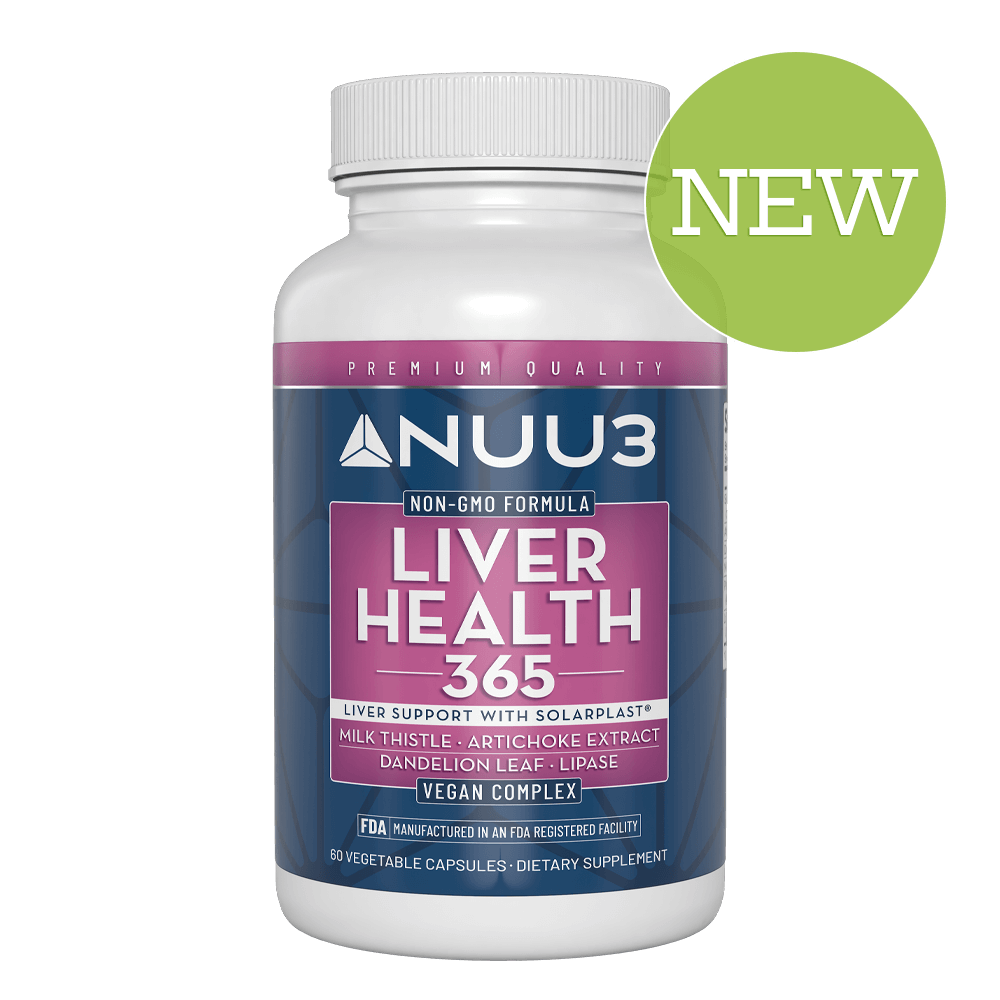You often hear the saying, "You are what you eat," but research shows that different food groups can affect your body, including balancing your hormones.
A hormone-balancing diet involves eating specific foods to regulate hormones and promotes well-being. For example, women who consume processed foods may have elevated levels of estrogen, which can increase their risk of obesity.
Incorporating essential nutrients and vitamins, such as those found in NUU3 Keep Calm Gummies, NUU3 Supergreens, and NUU3 Active Immunity Gummies, can also enhance the effectiveness of this dietary approach.
What is a hormone-balancing diet?
The hormone-balancing diet centers on eating foods that may help regulate the body's hormones. There is no one-size-fits-all approach. This diet includes whole, nutrient-dense foods and limits processed items.
Some general recommendations include:
-
Eating regular meals and snacks throughout the day: This helps to keep your blood sugar levels stable, which regulates hormones such as insulin.
-
Including protein with each meal and snack: Protein helps to regulate hormones such as leptin and ghrelin, which are involved in feelings of hunger and fullness.
-
Eating plenty of fruits, vegetables, and whole grains: These foods are good sources of fiber, vitamins, minerals, and antioxidants, supporting hormonal health.
-
Limiting processed foods, sugary drinks, and unhealthy fats: These foods can contribute to hormonal imbalances.[1]
Here are some specific examples of hormone-balancing foods:
-
Cruciferous vegetables: These vegetables, such as broccoli, cauliflower, kale, and Brussels sprouts, contain compounds that may help to support estrogen metabolism.
-
Fatty fish: Fatty fish, such as salmon, tuna, and sardines, are a good source of omega-3 fatty acids, which have been linked to improved insulin sensitivity and reduced inflammation.
-
Healthy fats: Healthy fats, such as those found in avocados, nuts, and seeds, are important for hormone production and can help to keep you feeling full.
-
Fiber-rich foods: Fiber-rich foods, such as fruits, vegetables, and whole grains, can help regulate blood sugar levels and support gut health, which is important for hormone balance.
Many of the foods and vitamins for hormonal imbalance listed above can be found in NUU3 Supergreens and NUU3 Active Immunity Gummies. Taking these supplements daily can improve gut health. They also boost metabolism and reduce the negative effects of stress. You may also find taking the NUU3 Keep Calm Gummies along with eating a hormone-balancing diet keeps you on track with your health goals.
How does your diet affect your hormones?
What you eat helps to form the building blocks needed to keep your body healthy and functioning well. When you don’t eat the foods your body needs, your hormones may be affected directly and indirectly.
1. Direct effect on hormone production and secretion
Our body requires specific nutrients to create hormones or impact their production. For instance, protein is necessary for hormone production, and iodine is crucial for the production of thyroid hormones. If your diet doesn't provide these nutrients, you may experience a lack of energy, feel fatigued, or even develop thyroid-related issues.
Not getting enough fiber and other key nutrients can harm your gut hormones, ghrelin and GLP-1. Without a proper balance of these hormones, you may tend to overeat, leading to excess weight gain.[2]
2. Indirect effect on hormone sensitivity and function
Eating excessive sugar or processed carbohydrates can lead to blood sugar spikes. This prompts the body to release insulin to control the sugar. Over time other hormone functions related to hunger and metabolism may change.
A diet rich in processed foods, unhealthy fats, and added sugars can cause chronic inflammation and weight gain. This impairs your body's ability to respond to hormones effectively causing an imbalance.[3] One study[1] found that people who ate a diet rich in ultra-processed foods were hungrier. Researchers believed that increased ghrelin release caused this.
Other examples of how diet can affect the production of hormones:
-
Estrogen: Certain dietary factors, like soy products containing phytoestrogens, can influence estrogen metabolism in the body. Too much estrogen causes weight gain, insomnia, and anxiety. In some, higher rates of breast cancer[4] were also seen.
-
Testosterone: Diets high in saturated fat and low in fruits and vegetables have been linked to lower testosterone levels[5]in men.
How do hormones work in your body?
Hormones are chemical messengers that help regulate various processes throughout the body. Endocrine glands, including the pituitary, thyroid, and adrenal glands, pancreas, ovaries, and testes produce them. Here's a general overview of how hormones work in the body:
-
Metabolism: Hormones impact how efficiently your body converts food into energy. For example, the insulin hormone unlocks your blood cells to help absorb sugar from your blood, regulating your sugar levels.
-
Reproductive System: Sex hormones, such as estrogen and testosterone, regulate sexual development and reproductive functions.
-
Stress and Mood: Hormones like cortisol and serotonin affect stress responses and emotional well-being. You may have experienced changes in these hormones when faced with a “fight-or-flight” situation.
All hormones released in your body work on a feedback system.[6]
A negative feedback loop occurs when hormone levels reach a certain point; they signal to stop further hormone production.
On the other hand, a positive feedback loop may trigger a response that reinforces and amplifies the original signal, like when you cut yourself and a clot forms to stop the bleeding. The good news is your body knows which feedback loop to follow, and a hormone-balancing diet can help keep things in check.
How do you know if your hormones are imbalanced?
Your body does a great job of regulating hormones so that it will let you know when something isn’t right. Recognizing signs of hormone imbalance is important for addressing potential issues. Symptoms can vary widely, but common symptoms include:
-
Slow or rapid heart rate
-
Changes in weight
-
Digestive issues like diarrhea or constipation
-
Emotional disturbances like depression or anxiety
When it comes to sex hormones, these signs may present differently in females and males.
| Signs of Sex Hormone Imbalances in Females | Signs of Sex Hormone Imbalances in Males |
|
|
How does the hormone-balancing diet work?
Focusing on getting enough hormone-balancing foods provides nutrients for your body's needs. The hormone-balancing diet includes eating proteins, fats, and carbohydrates, to maintain stable hormone levels.
This dietary approach works by consuming foods believed to promote hormonal balance. The diet does not fit everyone. What works for one person may not work for another.
People often combine this diet with other changes. These include stress management, regular exercise, and NUU3 supplements. Ask your healthcare provider or a dietitian if you're considering trying the hormone-balancing diet. They will make sure it is safe and right for you.
FAQs
Does hormone hormone-balancing diet work for weight loss?
A hormone-balancing diet can be beneficial for weight loss because it aims to optimize the levels of hormones that affect metabolism, appetite, and fat storage. When these hormones are in balance, the body is more efficient at burning fat and maintaining a healthy weight.
Worst foods for hormone balance
Just like eating certain foods is beneficial to balancing your hormones, some foods could lead to an imbalance. Some of the worst foods that could bring about hormone imbalance include:
- Sugar and refined carbohydrates
- Trans fats found in processed foods, fried foods, and margarine
- Excessive caffeine and alcohol
- Processed foods
- Soy products (in some cases)
How do I reset my hormones to lose weight?
To reset your hormones for effective weight loss, start by maintaining a balanced diet using the tips listed in this article. Incorporate regular exercise into your routine, combining both cardio and strength training to regulate hormones and boost metabolism. Ensure you get 7-9 hours of quality sleep each night to support your body in repairing and balancing hormone levels. Practice stress management techniques like meditation, yoga, or enjoying hobbies you love. Lastly, talk with your healthcare provider about using supplements like NUU3 Keep Calm Gummies, NUU3 Super Greens, and NUU3 Active Immunity Gummies to support your health goals.
Conclusion
The hormone-balancing diet offers a natural approach to optimizing hormonal health. You can support your body's complex hormonal system by making informed diet choices and getting key nutrients. This helps your overall health.
A diet that balances hormones can help with weight loss. But, it works best when combined with a healthy lifestyle. You can use natural supplements like NUU3 Keep Calm Gummies, NUU3 Supergreens, and NUU3 Active Immunity Gummies with a hormone-balancing diet to achieve even better results.
Always consult a healthcare provider before making big changes to your diet, exercise, or adding supplements. This is especially important if you have health conditions.
References
1] ↑ Elizabeth L, Machado P, Zinöcker M, Baker P, Lawrence M. Ultra-Processed Foods and Health Outcomes: A Narrative Review. Nutrients. 2020;12(7):1955. Published 2020 Jun 30. doi:10.3390/nu12071955
2] ↑ Müller TD, Finan B, Bloom SR, et al. Glucagon-like peptide 1 (GLP-1). Mol Metab. 2019;30:72-130. doi:10.1016/j.molmet.2019.09.010
3] ↑ Ultra-processed Food Consumption, Appetite, and Weight Gain. www.naturalmedicinejournal.com. https://www.naturalmedicinejournal.com/journal/ultra-processed-food-consumption-appetite-and-weight-gain
4] ↑ Domínguez-López I, Yago-Aragón M, Salas-Huetos A, Tresserra-Rimbau A, Hurtado-Barroso S. Effects of Dietary Phytoestrogens on Hormones throughout a Human Lifespan: A Review. Nutrients. 2020;12(8):2456. Published 2020 Aug 15. doi:10.3390/nu12082456
5] ↑ Hu TY, Chen YC, Lin P, et al. Testosterone-Associated Dietary Pattern Predicts Low Testosterone Levels and Hypogonadism. Nutrients. 2018;10(11):1786. Published 2018 Nov 16. doi:10.3390/nu10111786
6] ↑ Kiesewetter A, Schmiemann P. Understanding Homeostatic Regulation: The Role of Relationships and Conditions in Feedback Loop Reasoning. CBE Life Sci Educ. 2022;21(3):ar56. doi:10.1187/cbe.21-04-0092











